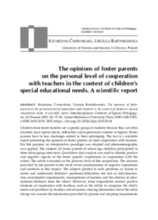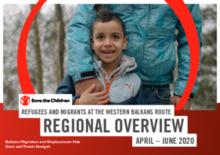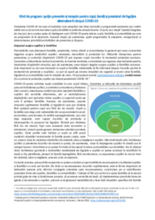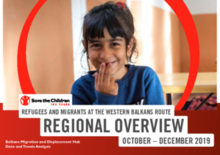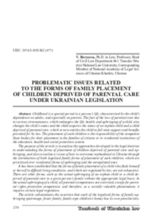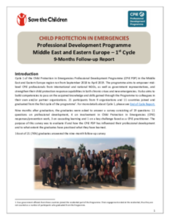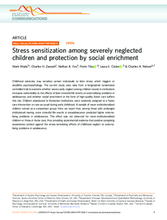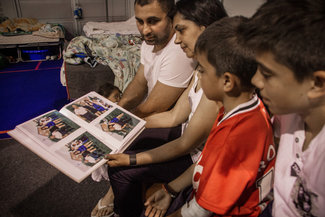

Displaying 531 - 540 of 1071
This report presents the opinions of foster parents in Poland on their cooperation with teachers.
The study is reflecting on the nature and features of social work with families with children, attempting to discuss social work as assistance and apprehension and to detect whether there is any causal link between the efficiency of social work and the narrative approach and the “unstoried”, “faceless” condition of the families. The authors argue that professional attitude aimed at providing child protection support is not possible without knowing the story of families with children.
Data and Trend Analysis (DATA) Refugees and Migrants at the Western Balkans Route Regional Overview, covering period April – June 2020, describes key trends in migrations in the region, detailing information about the number of people on the move, demography (age, sex, country of origin, etc), behavioral patterns, and routes in use - with a focus on children, particularly unaccompanied children.
Pandemia COVID-19 solicită adaptarea și / sau dezvoltarea de servicii și programe pentru a continua să servim cel mai bine copiii și familiile lor în timpul acestei perioade rapid schimbătoare.
Această mapă, de asemenea, ajută programelor la adaptare, reorganizare și determinarea priorității activităților de prevenire și răspuns.
This report describes key trends in migrations in the Balkans region, detailing information about the number of people on the move, demography (age, sex, country of origin, etc), behavioral patterns, and routes in use - with a focus on children, particularly unaccompanied children.
The purpose of the article is to analyze the approaches developed in the legal doctrine to understanding the forms of placement of children deprived of parental care and upbringing, and also to outline a vision of how to overcome orphanhood in Ukraine through the introduction of both legalized family forms of placement of such children, which are prioritized over residential forms of upbringing and the unregulated ones.
This report presents results from a survey administered to graduates of the Child Protection in Emergencies Professional Development Programme (CPiE PDP) in the Middle East and Eastern Europe region to evaluate if and how the CPiE PDP has influenced their professional development and to what extent the graduates have practiced what they have learned.
The current study uses data from a longitudinal randomized controlled trial to examine whether severe early neglect among children reared in institutions increases vulnerability to the effects of later stressful life events on externalizing problems in adolescence, and whether social enrichment in the form of high-quality foster care buffers this risk.
This article from France 24 shares the story of Visinel Balan, who grew up in an orphanage in Romania in 1987 as "one of the 'Decretei' or 'children of the decree': children abandoned by poorer families as a result of the natalist policies of the communist dictator Nicolae Ceausescu" when he was two months old.

